External links
- http://asrm.egloos.com/47674 in Korean;
- Sadettin Buluç-Şamanizm in Turkish, citing Pripuzov, N.- Svedeniya dlya izuçeniya şamastva u yakutov yakutskago okruga (Izves. vost. Sibir. Otd. Geog. Obşç.), İrkutsk, 1885, XV, sayı 3-4.
Ukulan-tojon, also known as Su Ata, Ed'uget-tojon, Ukula, and Ukun, is a water god in Altay and Yakut mythologies. It protects the cleanliness of the water and fish. Before fishing, he is asked for permission and prayed that the fishing is auspicious. He resents those who pollute the water and dry the lakes, and punishes them. He does not welcome the burning of a fire on the icy part of the river in winter and holds a grudge against those who do so. The phrase "Küğöh Bolloh" (Yakut: Күөх боллох, "Sky Bulah") is sometimes used for him.
It derives from the root (Uk/Uğ). In Altaic languages, the verb Ukağah means to wash, while Uha means water in Buryat. Uğ/Uk means the origin, and water is also seen as the origin of everything.

Varuna is a Hindu god, associated with the sky, oceans and water. In the Vedic scriptures, he is paired with the god Mitra and is the lord of Ṛta (justice) and Satya (truth). Varuna is also mentioned as an Aditya, the sons of the goddess Aditi.

Fishing is the activity of trying to catch fish. Fish are often caught as wildlife from the natural environment, but may also be caught from stocked bodies of water such as ponds, canals, park wetlands and reservoirs. Fishing techniques include hand-gathering, spearing, netting, angling, shooting and trapping, as well as more destructive and often illegal techniques such as electrocution, blasting and poisoning.
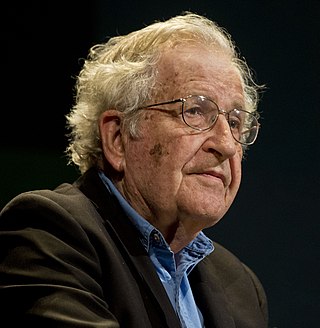
Universal grammar (UG), in modern linguistics, is the theory of the innate biological component of the language faculty, usually credited to Noam Chomsky. The basic postulate of UG is that there are innate constraints on what the grammar of a possible human language could be. When linguistic stimuli are received in the course of language acquisition, children then adopt specific syntactic rules that conform to UG. The advocates of this theory emphasize and partially rely on the poverty of the stimulus (POS) argument and the existence of some universal properties of natural human languages. However, the latter has not been firmly established, as some linguists have argued languages are so diverse that such universality is rare. It is a matter of empirical investigation to determine precisely what properties are universal and what linguistic capacities are innate.

The Yukaghirs, or Yukagirs are a Siberian ethnic group in the Russian Far East, living in the basin of the Kolyma River.

A fisher or fisherman is someone who captures fish and other animals from a body of water, or gathers shellfish.

Yakuts or Sakha are a Turkic ethnic group who mainly live in the Republic of Sakha in the Russian Federation, with some extending to the Amur, Magadan, Sakhalin regions, and the Taymyr and Evenk Districts of the Krasnoyarsk region. The Yakut language belongs to the Siberian branch of the Turkic languages.
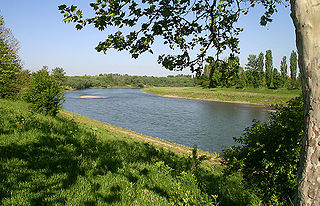
The Uzh is a river in Ukraine and Slovakia. Its name comes from the ancient west Slavic dialect word už, meaning "Snake",.
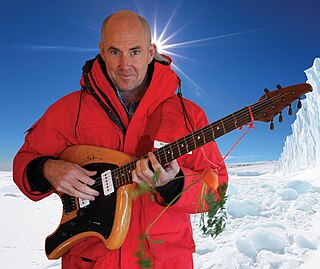
Henry Kaiser is an American guitarist and composer, known as an idiosyncratic soloist, a sideman, an ethnomusicologist, and a film score composer. Recording and performing prolifically in many styles of music, Kaiser is a fixture on the San Francisco Bay Area music scene. He is considered a member of the "second generation" of American free improvisers. He is married to Canadian artist Brandy Gale. He is the son of Henry J. Kaiser Jr. and the grandson of industrialist Henry J. Kaiser.
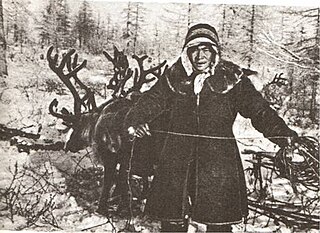
Dolgans are an ethnic group who mostly inhabit Krasnoyarsk Krai, Russia. They are descended from several groups, particularly Evenks, one of the indigenous peoples of the Russian North. They adopted a Turkic language sometime after the 18th century. The 2010 Census counted 7,885 Dolgans. This number includes 5,517 in former Taymyr Autonomous Okrug.

Manx English, or Anglo-Manx, is the historic dialect of English spoken on the Isle of Man, though today in decline. It has many borrowings from Manx, a Goidelic language, and it differs widely from any other variety of English, including dialects from other areas in which Celtic languages are or were spoken, such as Welsh English and Hiberno-English.
A mere is a shallow lake, pond, or wetland, particularly in Great Britain and other parts of western Europe.
A water bailiff is a law-enforcement officer responsible for the policing of bodies of water, such as a river, lake or coast. The position has existed in many jurisdictions throughout history.

There are two major sources of fish in Uganda; one is from aquaculture, the other from fishing in rivers and lakes. The latter has made up the largest and most significant share of all fishing. Open water covers 15.3 percent of Uganda's surface and comprises five major lakes which are the main sources of fish in the country. Lake Victoria continues to be the most important water body in Uganda both in size and contribution to the total fish catch, followed by Lake Albert and Lake Kyoga.
Olonkho or Olongkho is a series of Yakut heroic epics. The term Olonkho is used to refer to the entire Yakut epic tradition as well as individual epic poems. An ancient oral tradition, it is thought that many of the poems predate the northwards migration of Yakuts in the 14th century, making Olonkho among the oldest epic arts of any Turkic peoples. There are over one hundred recorded Olonkhos, varying in length from a few thousand to tens of thousands of verses, with the most well-known poem Nyurgun Bootur the Swift containing over 36,000 verses.

Yakut, also known as Yakutian, Sakha, Saqa or Saxa, is a Turkic language spoken by around 450,000 native speakers, primarily the ethnic Yakuts and one of the official languages of Sakha (Yakutia), a federal republic in the Russian Federation.

Lake Rescue is located in Windsor County of south central Vermont, in the northeastern United States. Occupying 180 acres (73 ha) and reaching depths of 95 feet (29 m), it is the tenth-deepest and 23rd-largest lake in the state. Lake Rescue is located along VT Route 100 about three miles north of Ludlow and Okemo Mountain, and it is surrounded by the town of Ludlow. The lake is fed by the Black River and is the third of four lakes extending from Plymouth, Vermont through Ludlow, with Lake Amherst and Echo Lake to the north and Lake Pauline to the south. The northern section of the lake, connected to the main body via a shallow channel, is referred to as Round Pond.
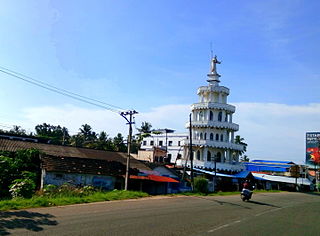
Sakthikulangara is a zone and neighbourhood situated at the coastal area of the city of Kollam in Kerala India. It is one among the 6 zonal headquarters of Kollam Municipal Corporation.
The Munni is a river in the Sakha Republic (Yakutia), Russia, a right tributary of the Belyanka, of the Lena basin. It has a length of 103 kilometres (64 mi) and a drainage basin area of 1,760 square kilometres (680 sq mi).
The Uel-Siktyakh is a river in Sakha Republic (Yakutia), Russia. It is one of the northern tributaries of the Lena. The river has a length of 247 kilometres (153 mi) and a drainage basin area of 6,630 square kilometres (2,560 sq mi).